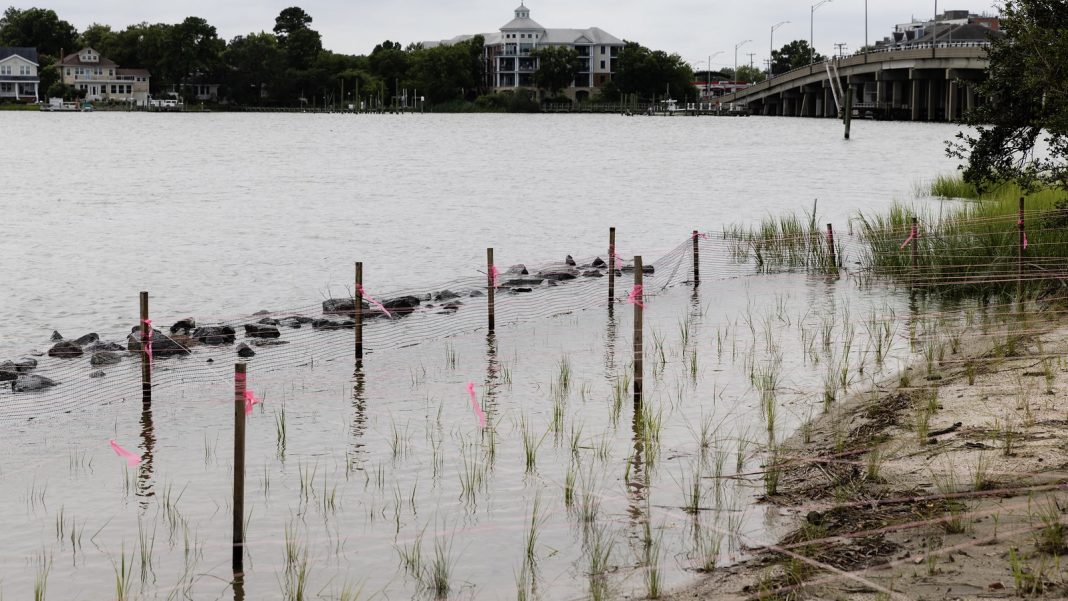As the climate warms, sea levels are rising and more powerful storms are battering coastlines.
So many coastal communities now face a growing risk of erosion and flooding.
To protect themselves, some cities and towns are working to create or restore what are called living shorelines, natural coastal features like reefs, dunes, and marshes filled with vegetation.
These diverse areas along the water’s edge provide critical habitat to wildlife like fish, birds, sea turtles, and oysters.
And because living shorelines separate coastal communities from the water, they act like natural wave barriers, helping to prevent erosion caused by pounding ocean surf.
When a storm hits, living shorelines can also reduce the risk of flooding by absorbing storm surges before the water reaches inland homes and businesses.
And dunes, marshes, and reefs can trap sediment and naturally grow and move over time, which allows them to keep up with rising sea levels better than a concrete seawall or other artificial barrier.
So even as the climate changes, living shorelines can continue to offer coastal communities protection from flooding and erosion.
Reporting credit: Ethan Freedman / ChavoBart Digital Media
Only 28% of U.S. residents regularly hear about climate change in the media, but 77% want to know more. Help us bring climate news to more people.


